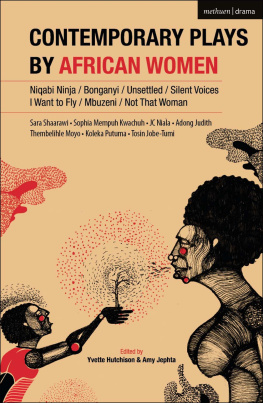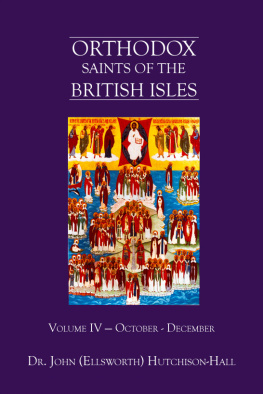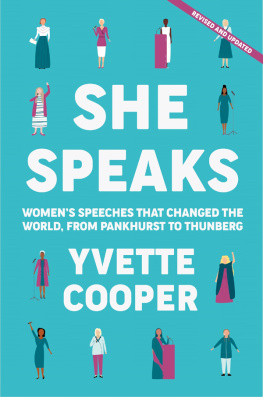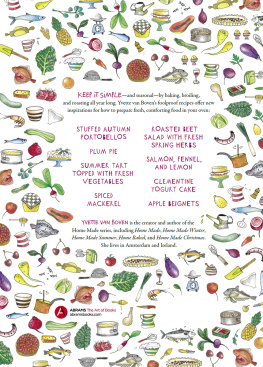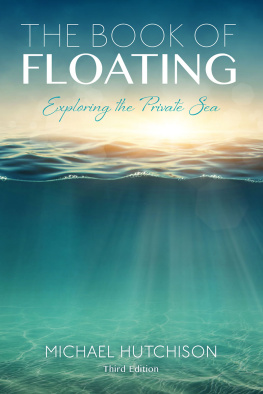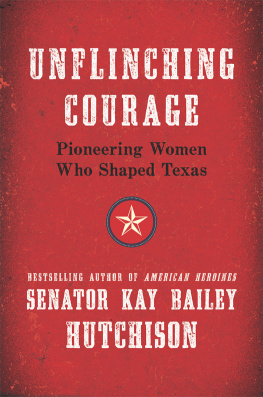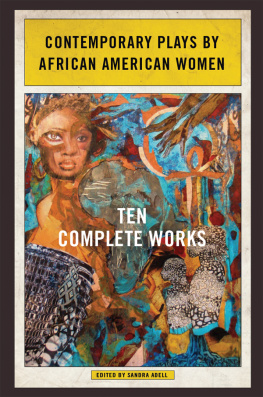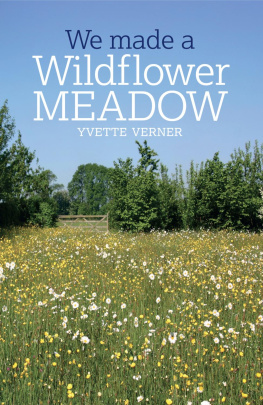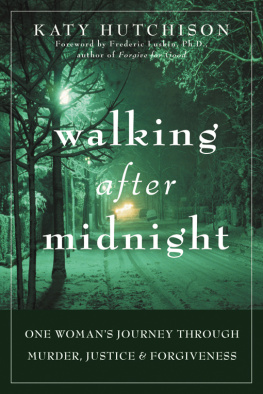Yvette Hutchison - Contemporary Plays by African Women
Here you can read online Yvette Hutchison - Contemporary Plays by African Women full text of the book (entire story) in english for free. Download pdf and epub, get meaning, cover and reviews about this ebook. year: 2018, publisher: Methuen Drama, Bloomsbury Publishing, genre: Art. Description of the work, (preface) as well as reviews are available. Best literature library LitArk.com created for fans of good reading and offers a wide selection of genres:
Romance novel
Science fiction
Adventure
Detective
Science
History
Home and family
Prose
Art
Politics
Computer
Non-fiction
Religion
Business
Children
Humor
Choose a favorite category and find really read worthwhile books. Enjoy immersion in the world of imagination, feel the emotions of the characters or learn something new for yourself, make an fascinating discovery.
- Book:Contemporary Plays by African Women
- Author:
- Publisher:Methuen Drama, Bloomsbury Publishing
- Genre:
- Year:2018
- Rating:5 / 5
- Favourites:Add to favourites
- Your mark:
- 100
- 1
- 2
- 3
- 4
- 5
Contemporary Plays by African Women: summary, description and annotation
We offer to read an annotation, description, summary or preface (depends on what the author of the book "Contemporary Plays by African Women" wrote himself). If you haven't found the necessary information about the book — write in the comments, we will try to find it.
Contemporary Plays by African Women — read online for free the complete book (whole text) full work
Below is the text of the book, divided by pages. System saving the place of the last page read, allows you to conveniently read the book "Contemporary Plays by African Women" online for free, without having to search again every time where you left off. Put a bookmark, and you can go to the page where you finished reading at any time.
Font size:
Interval:
Bookmark:


Yvette Hutchison and Amy Jephta
Impulses to tell stories bloom from contexts as much as they are borne from imagination, from the tangible realities of life as much as from the yearning for transcendence. The scope of subjects, themes, obsessions and impulses that frame these plays traverse a wide range of lived (and imagined) experiences. They are defined both by the coincidence of their shared geography and by the specificity of the lives presented therein. That the work is mostly political in nature is a given, in the way that a black woman putting pen to paper is almost always a political act, working as it does against the hegemonic canon of plays by white men. That the work is often tragic is similarly inescapable: these plays overwhelmingly reflect the inherited trauma of what it means to exist as a black woman, written between the lines or in the words themselves. That the work often explicitly or otherwise questions Africas relation to the West or interrogates the post-colonial subject is true as well.
Beyond that, however, lies a range of cultural specificities that make it difficult to speak for or on behalf of a we. These works are playful, ironic, heartbreaking and funny, simultaneously bound to their environments while being universal. Some were written in the authors mother tongue and translated by her into English, while others include local languages in the English texts in songs, terms or proverbs. Broadly, they fall into two thematic categories: The first engages directly with womens potential responses to gendered abuse: how they negotiate their desires and aspirations in a world where male control is often enforced through physical and/or sexual violence. Sara Shaarawis Niqabi Ninja addresses Egyptian womens sense of shame regarding their bodies. This play fantasises about how the protagonists sense of agency evolves through a comic superhero role model, from fearful defence to defiant offence.
Tosin Jobi-Tumes Not That Woman considers the role of women in abuse, female solidarity and agency from a Nigerian perspective. Thembelihle Moyos I Want to Fly (Zimbabwe) tells the story of an African girl who wants to be a pilot. It looks at how patriarchal society can limit female aspirations and shapes the thinking of men regarding lobola (bride price), how women are viewed as domestic or sexual commodities, why women endure abusive men, and the role society at large plays in these issues. The second thematic thread in this collection considers the role of history in the experiences of women. Many historical periods of injustice, particularly colonialism and its legacies in the twentieth and twenty-first centuries, have not been acknowledged or critiqued to any great extent. The plays that follow explore aspects of how various disavowed collective histories and individual memories continue to resonate in the present, from a particularly female perspective.
Adong Judiths memory play, Silent Voices, is based on interviews she conducted with the LRA Rebel Victims of Northern Uganda and how this conflict continues to affect Ugandans in the present. JC Nialas Unsettled explores gender violence across races, post-colonial issues and relationships between black and white Kenyans living in and out of the country. South African Koleka Putumas Mbuzeni tells the stories of four orphaned girls, their sisterhood, and their fixation with death and burials. It suggests the unseen force that governs and dictate the laws by which the villagers live. Sophia Mempuh Kwachuhs Bonganyi draws on an old Cameroonian myth to suggest how the history of slavery continues to affect perceptions of women in their societies today. This play goes beyond the ghosts that haunt Mbuzeni, as it is told by a ghost at her funeral, on the eve of a dance competition she had hoped to win to free herself and her family from slavery, and thus achieve full personhood.
These plays link ghosts and memory, the past and the present. They consider the complexities African youths face as they negotiate various complex and unjust pasts in order to make futures for themselves. The collection comes from the need to hear and read as many of these experiences as possible within the confines of a single book. These playwrights names may be fresh to scholars and supporters of new writing from Africa, and many of these women are being published here for the first time, but they join the ranks of women who have led the movement of self-actualization among African female artists writers like Fatima Dike and Gina Mhlope (South Africa), Stella Oyedepo, Zulu Sofola, Julie Okoh and Irene Salami (Nigeria), earlier playwrights like Ama Ata Aidoo and Efua Sutherland (Ghana), Micere Mugo (Kenya), Rose Mbowa (Uganda), Penina Mlama and Amadina Lihamba (Tanzania), and so many more. It would be ideal (if not feasible) to update this volume annually, based on the number of plays being written by South African women alone. That these plays often remain unproduced, are written without development funding or formal support structures and without a view to publication does little to curb the playwrights irrepressible impulse to create.
What this collection aims to do is widen the scope of new playwriting by a centimetre or two, to create a bit of room for these underrepresented voices, if only to hint at how many new writers have entered the conversation since such a collection was last published. If only to indicate how much legwork there is to be done to find similar spaces for other emerging and established female writers from the continent.
Despite the UN recognizing and advocating gender equality and the empowerment of women, particularly with the appointment of Michelle Bachelet as the first Under-Secretary General and Executive Director of UN Women, African women continue to lack healthcare (more women die from complications giving birth than from war or cancer), education, and justice systems that will uphold their human rights and equal access to the means for economic empowerment or representation in cultural fora (cf. Mikell, 1997). Although women playwrights are very productive in creating new works for the stage and are active in many community projects, there is a significant imbalance in what is published by women on the continent. This is very noticeable when one compares published material on African-American women playwrights to their African counterparts. For example, Kathy Perkinss
Next pageFont size:
Interval:
Bookmark:
Similar books «Contemporary Plays by African Women»
Look at similar books to Contemporary Plays by African Women. We have selected literature similar in name and meaning in the hope of providing readers with more options to find new, interesting, not yet read works.
Discussion, reviews of the book Contemporary Plays by African Women and just readers' own opinions. Leave your comments, write what you think about the work, its meaning or the main characters. Specify what exactly you liked and what you didn't like, and why you think so.

